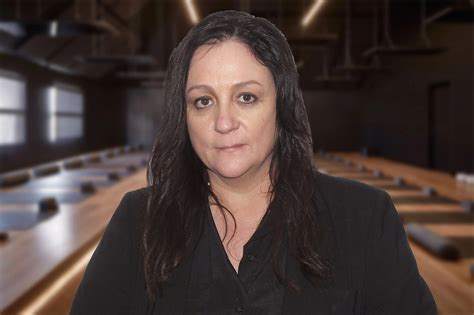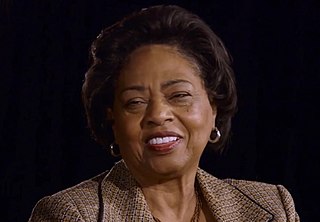A Quote by Annalee Newitz
As fears about the energy and environmental crises reach a fever pitch, we're all searching for solutions. And one possibility is that we could fix everything if we'd just shrink our population back down to about 2 billion people - which would put us roughly where we were at 80 years ago.
Related Quotes
For decades, I thought that scientific truth, solid economic case studies, and common sense were enough to bring about change on the environmental front. After all, the data is so compelling! I thought that if people just understood the severity of today's environmental threats and knew about available solutions, those solutions would happen. Not so.
I overcame my fears and troubles simply by praying and learning to calm down when scary things were happening - I formed certain mantras which helped me become pro-active vs. reactive, such as :
What's the problem? What's the solution?
Time Energy Money
What do I get? What do I give?
Shrink It. Fix it. Grow it.
If we could magically transport ourselves back to the young Earth, when it was only a billion years old or two billion years old or three billion years old or four billion years old, we wouldn't be able to survive. We would have a hard time surviving if we were transported to the time when dinosaurs were around.
Well, one thing that has changed is the number of people killed by terrorists in Pakistan. Civilians killed has gone down really quite dramatically. There was a newspaper article here about a month ago that got big headlines which said that civilian deaths from terrorism were down something like 80 percent or 90 percent from their peak of two or three years ago.
The collective shortfall of the 3.08 billion people (47 percent of world population) who, in 2005, lived below $2.50 per day was $507 billion per annum, which indeed comes to about two-thirds of the present US military budget. This gives us a rough sense of how much the eradication of poverty would cost.
I think that humans are also set up to survive. We're not as small as rats, but we make up for that by being intelligent enough to make our own hiding places and to adapt to new habitats, even if they are changing very quickly. We have an enormous population, and can afford to lose billions of people without suffering very much as a species. Indeed, some would say losing five billion people would be good for the planet - I disagree with them, but can't deny that we would do just fine if there were two billion of us or even one billion.
If we ever establish contact with intelligent aliens living on a planet around a distant star ... They would be made of similar atoms to us. They could trace their origins back to the big bang 13.7 billion years ago, and they would share with us the universe's future. However, the surest common culture would be mathematics.
It is only through popular consultation and exchange with the people about social and economic policies that we were going to define the strategic direction of Cuba in the next years. To reach prosperous and sustainable socialism, which is our aspiration, we discussed that with the entire population.
When we look out into space, we're looking back in time; the light from a galaxy a billion light-years away, for instance, will take a billion years to reach us. It's an amazing thing. The history is there for us to see. It's not mushed up like the geologic record of Earth. You can just see it exactly as it was.
Imagining the world without us is a recipe for despair and paralysis. I actually think it's more helpful to imagine the world before us, to look back at those unstable ecosystems of the Triassic and realize that were in another phase of unstable ecosystems. Knowing that, demystifying our situation as it were, makes it easier to think about solutions. We are not looking into the unknown. The only thing unknown about the situation is how we're going to fix it, and when.
One of the great things about the old days of television, 10 years ago, or 15 years ago, was that it was water cooler television. People would communally watch the same hour. People used to tell us all the time, we turn off the phones, we put the kids to bed and that one hour is uninterrupted. Then, the next day at the water cooler, they all talk about it.
I always give the analogy of the Earth at Night picture, of 7.3 billion of us, right? And everyone says, "Well, that's population." Well, if you took the entire world's population and you lived at the density of Manhattan proper - not a bad place to live - how much space do 7.3 billion people take up? The state of Colorado. At which point I end my lectures, because I want you to be thinking ... is this really a question of population, or is this a question of land use and resource consumption? And let's face it, the top 1.3 billion of us are doing all the damage. Sorry.































